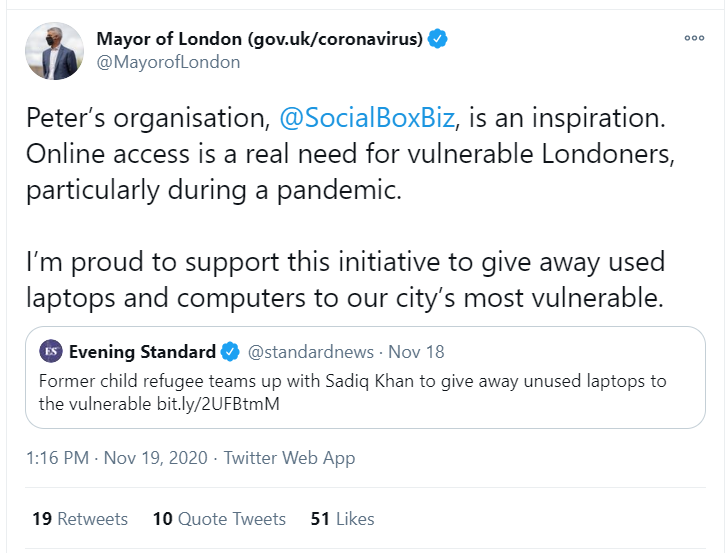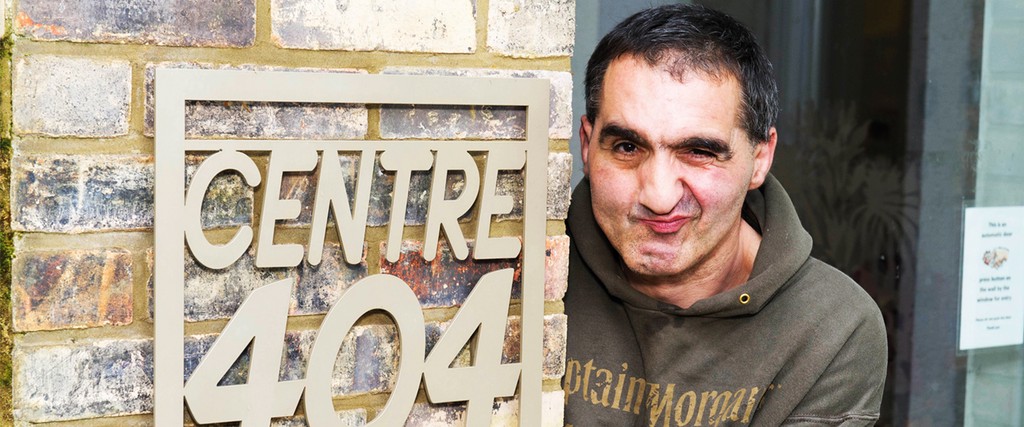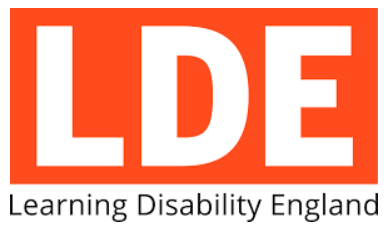Reducing Digital Exclusion
The Covid-19 Pandemic has further highlighted how much social connection is increasingly online, and therefore that digital exclusion can be a big driver of isolation and loneliness.
This has been the case for many of our service users and family carers.
To tackle this problem we have achieved two major initiatives so far:
- Successful in application for a grant from City Bridge Trust via the London Community Response Fund. This was split between our Learning & Leisure Service and Supporting Families Service to fund phones and tablets for our Children and Young People Club members and isolated family carers so they could continue being supported and stimulated virtually at home.
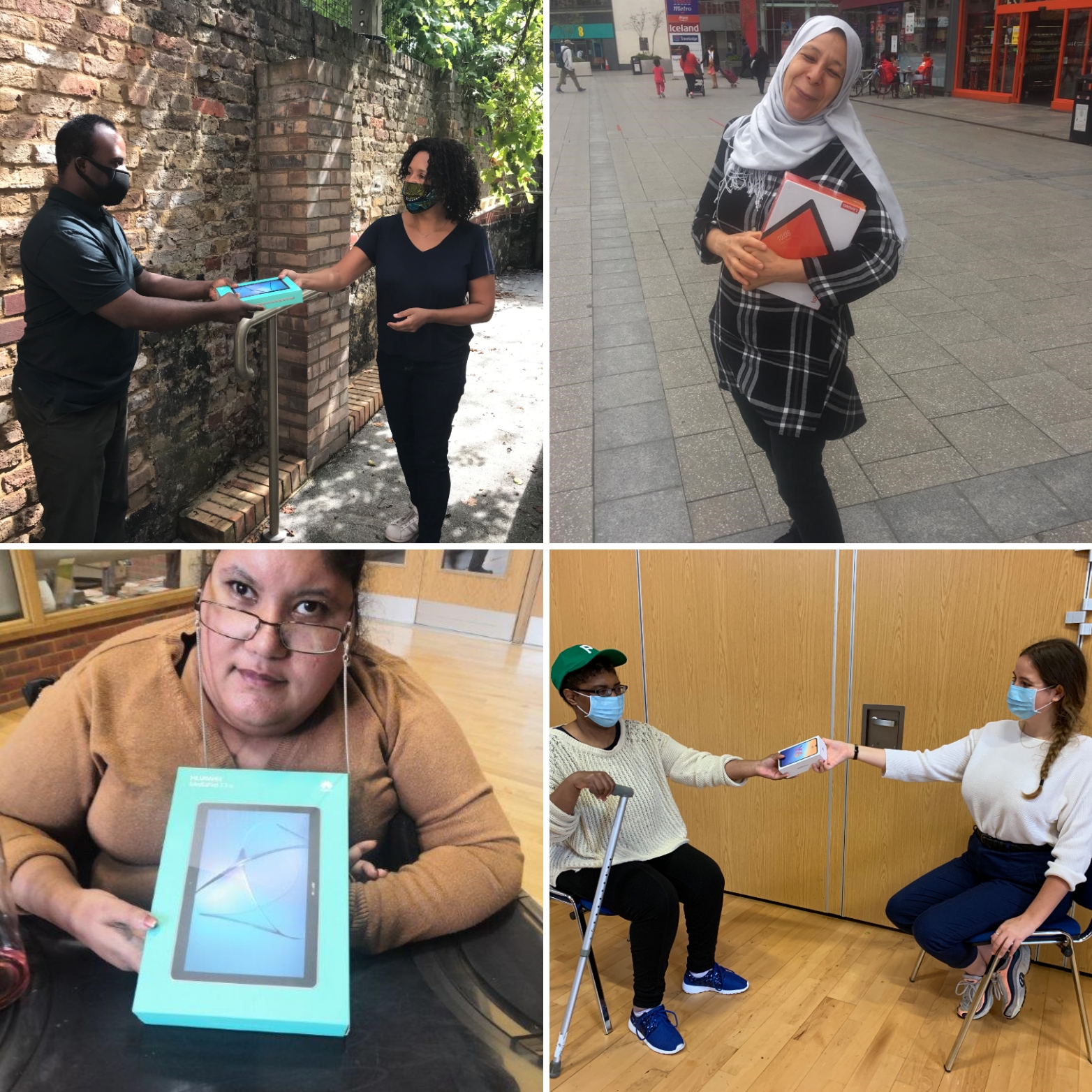
Image shows some of our service users receiving their phone and tablet donations to enable them to keep accessing support virtually. - Securing a donation of refurbished laptops from Social Box Biz to help families to get through the second lockdown.
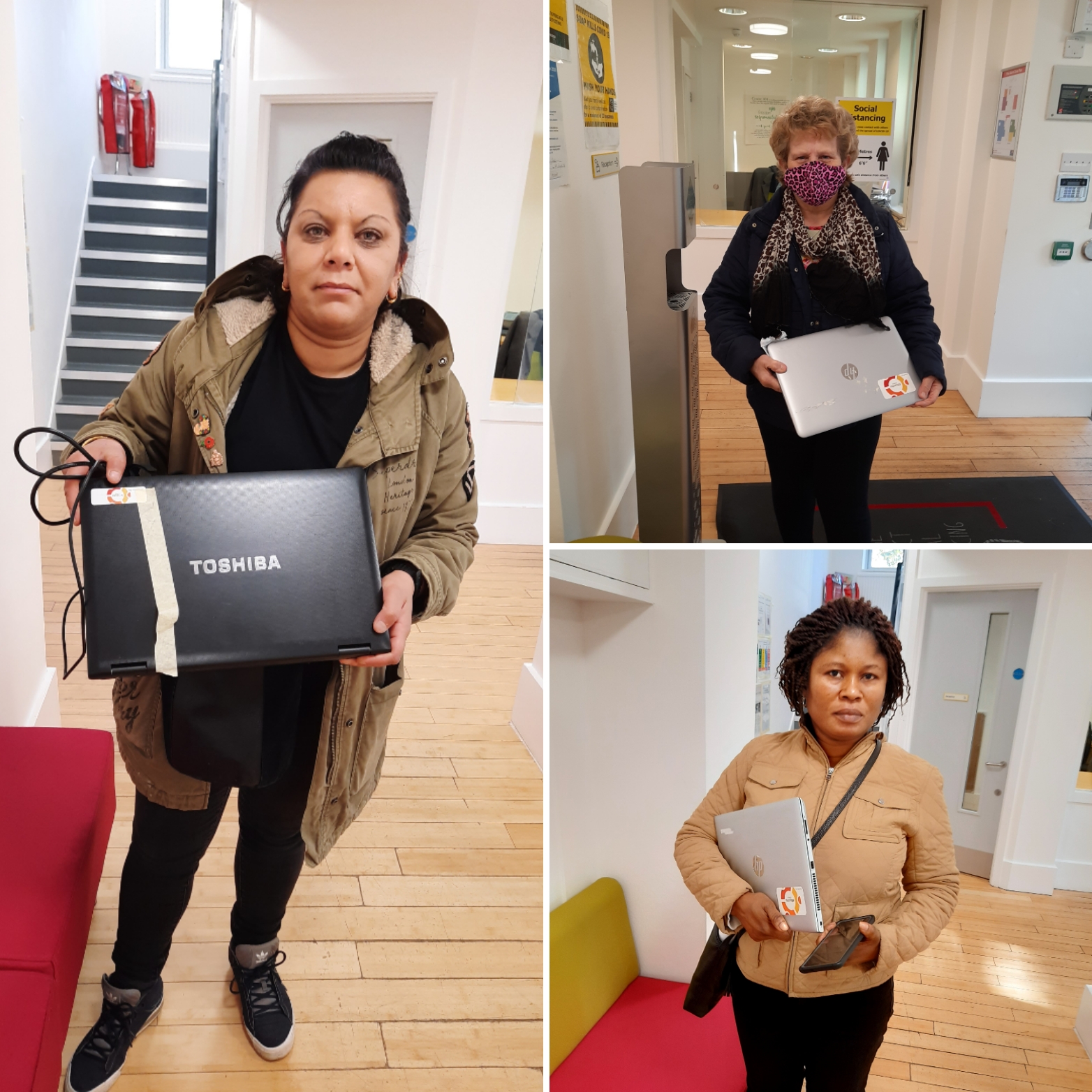
Image shows some of our family carers receiving their laptop donations to enable them to keep accessing support virtually.
Case Studies
These case studies, first shown on the Social Box Biz Blog, demonstrate what the need of our service users are, and where the laptops have been donated to in the effort to reduce digital exclusion:
- Carer, a 73 year old woman living in Camden, will use her laptop to access online activities such as yoga at Centre 404, as well as other events running online at Age UK, Career Hub, and more.
- Ms. T is the mother and primary caregiver of two sons with autism. Her youngest, who is 11 years old, needs significant support to help regulate his emotions. He has substantial cognitive, social, and communication difficulties. In addition to high and complex sensory needs, his anxieties and stress have greatly increased during the pandemic. He frequently displays challenging behaviours when anxious and stressed. He will throw himself around and needs support so as not to bite himself or others, pull hair, or scratch. His current laptop is broken, and he needs his own to access online activities, school activities, and games. Having a laptop will help him destress by engaging him in meaningful online activities and games. This would also give Ms. T a break, a way to shop online, the means to connect with friends, and more. A free laptop would also help her family pay for other essentials, such as groceries and bills, without sliding into debt.
- Ms. CH is a single parent living in Enfield with a 4 year old son. She has limited access to the internet and would like a laptop to access more online services, information, and advice. The laptop would also likely benefit her son with access to safe online activities and more.
- Ms. LB, a single parent of four children (the youngest with autism, sensory processing disorder, and speech and language difficulties, and another child awaiting an autism diagnosis), residing in Islington. Ms. LB receives a disability living allowance per her son via the Universal Credit and Careers Allowance. She had to shield during COVID-19 while struggling to connect to online support services such as therapy for her son and daughter. She is also facing difficulties accessing Centre 404 webinars and workshops for families in similar situations. All of this places her at higher risk of social isolation. A laptop can help with all of this while also providing a way for her children to complete coursework.
- Ms. LR’s family lives in Islington, and she receives the Disability Living Allowance for her son and works as a nursery assistant, which disqualifies her from the careers allowance. She lives with her elderly parents whom she also cares for and cannot claim other welfare benefits. Her income is just above the threshold, leaving her unable to purchase a tablet or laptop for herself. Her son has autism with significant cognitive, social, communication, and sensory difficulties. He is incontinent and remains wearing pull-up nappies. His high and complex sensory needs have dramatically increased due to the uncertainties and sudden loss of routine due to COVID-19. He requires constant attention around the clock. Ms. LR is exhausted and isolated, caring for her parents and son. She is a full-time caregiver working a part-time job and is at risk for social isolation. She struggles to access Centre 404 supporting families online webinars, as well as with healthcare appointments and therapy for her son due to lacking a laptop or PC. A laptop will enable access to online therapy for her son and will alleviate her loneliness and risk of social isolation while providing access to online support and a lifeline.
- Ms. CC is a 70 year old carer from Haringey whose laptop became broken months ahead of the pandemic, so she hasn’t any device at the moment. A laptop would give her access to online groups like the ones she used to attend for carers which provided social interaction. A laptop would give her the ability to order groceries online, especially in light of a second wave of COVID-19, and a way to stay in contact with friends and family.
- Ms. SW, a 52 year old woman providing care for a son with learning disability. She is unable to participate in coffee mornings and other activities for parents of learning disabled kids due to a lack of devices. She would also like to volunteer, and with a laptop, she could do all of these things.
- A parent of two school age children with no laptop or computer, she was given a work laptop but her children can’t use it. The laptop her children had from school had to be returned. Both her children, ages 17 and 10, have online homework and would like to once again enjoy games and learning apps, and their family could use a laptop to connect and communicate with family and friends and order groceries. While mom works, the family can’t afford a laptop because of bills, groceries, and essentials.
This initiative from Social Box Biz has been widely recognised as hugely important and is now being supported by @MayorofLondon Sadiq Khan:


